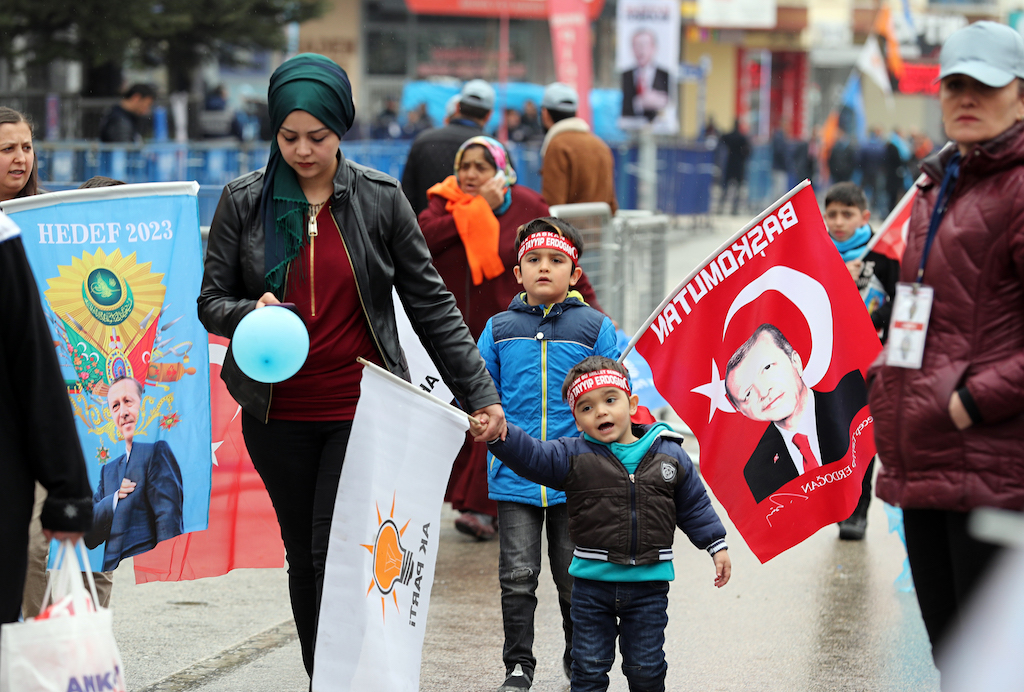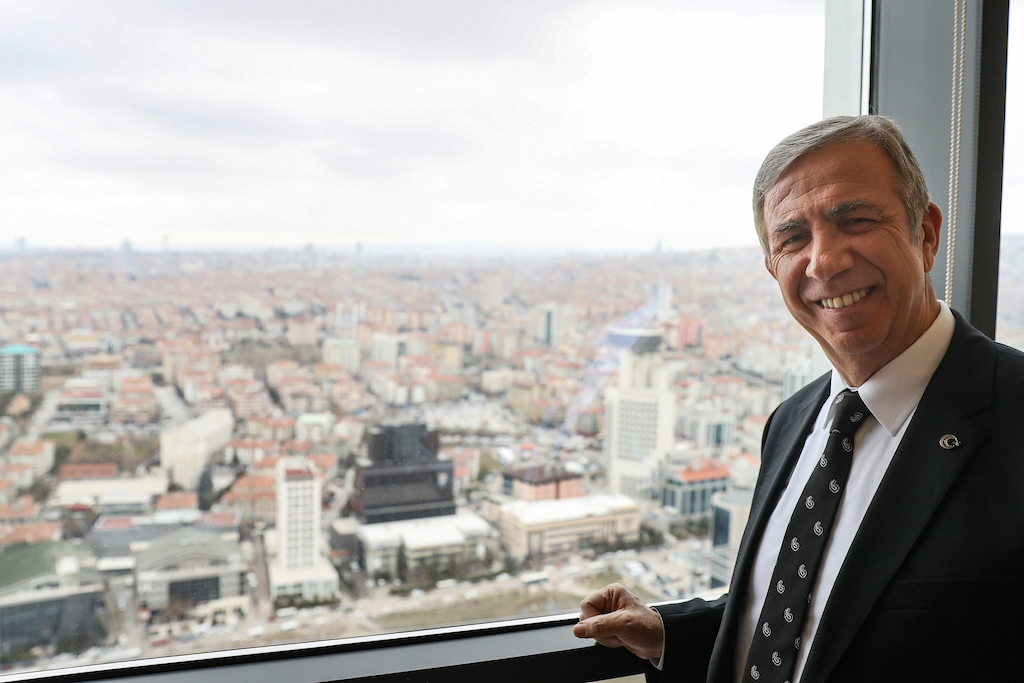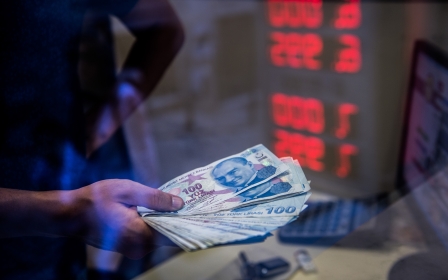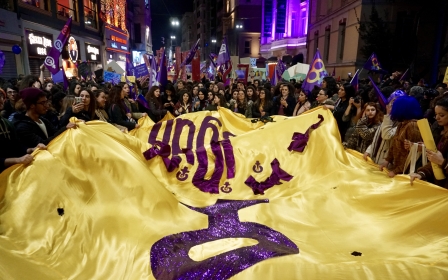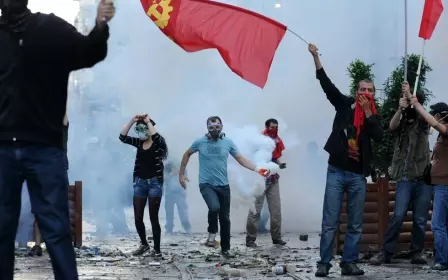Polls predict elections in Turkey will be too close to call - but Erdogan has a plan
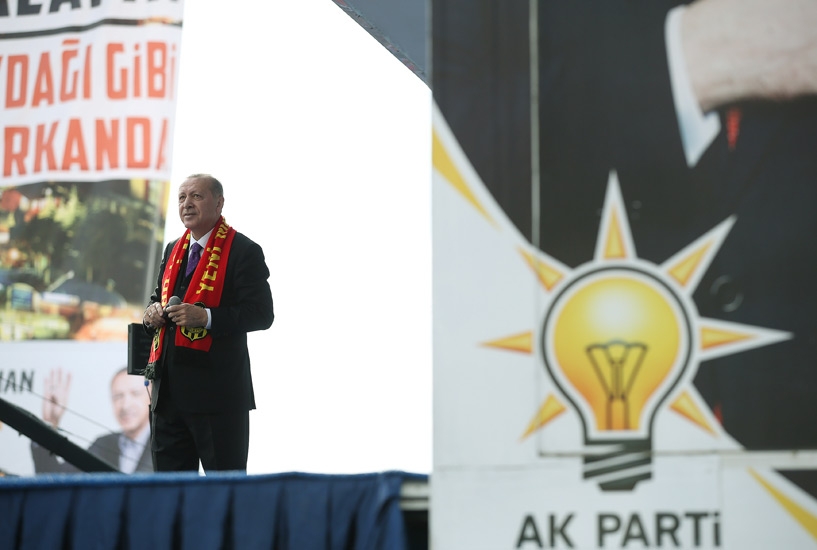
Turkish President Recep Tayyip Erdogan’s ruling Justice and Development Party (AKP) is navigating through one of the most challenging election campaigns in recent years due to the country's shrinking economy and increasing unemployment.
Polls indicate the ruling party would fare well in rural areas and smaller cities across the country in upcoming local elections scheduled for 31 March.
However, various sources close to the AKP in the capital - in addition to publicly available surveys - suggest metropolises such as Istanbul, Ankara, Bursa, Antalya, Hatay and Sanliurfa will be the scenes of tough election battles.
Facing the possibility of losing big cities, Erdogan last year decided to maintain the electoral alliance he made with Devlet Bahceli, the chairman of the Nationalist Movement Party (MHP). He also made a personal intervention to increase the scale of electoral campaigning with a number of rallies previously unseen for local elections.
But even with the alliance and the candidacies of prominent figures such as a former prime minister in Istanbul, the race is still largely neck and neck in urban centres.
Stay informed with MEE's newsletters
Sign up to get the latest alerts, insights and analysis, starting with Turkey Unpacked
“This time, Erdogan is running against the economic crisis," one source close to AKP told Middle East Eye. "The opposition is in disarray as usual, but they have the biggest advantage in many years.”
Turkey's economy shrank 2.7 percent in the fourth quarter 0f 2018 due to a currency crisis, while the annual inflation rate hit 20.35 percent in the same year. Food prices are a real concern since they increased by more than 30 percent year-on-year in January.
The opposition, an alliance of the secularist Republican People’s Party (CHP) and nationalist Good Party (IYI), nominated joint candidates, especially in big cities that are giving a hard time to the ruling party.
This year, the leftist and pro-Kurdish Peoples' Democracy Party (HDP), made a strategic move and didn’t nominate any candidates in major Western cities - meaning hundreds of thousands of their constituents are expected to vote for the CHP-IYI coalition.
'It isn’t an alliance. It is a union of force'
- Pervin Buldan, HDP
Because of their nationalistic tone, CHP and IYI don’t want to be seen in a coalition with HDP, which is seen as having ties to the Kurdistan Workers’ Party (PKK) that has fought the Turkish state since 1984.
HDP co-chair Pervin Buldan told Turkish media in January that her party wasn’t joining any alliance but was only supporting candidates it found to be democratic.
“It isn’t an alliance. It is a union of force. We want the candidates who are running against AKP to be strong," she said.
"This demand comes from our grassroots.”
Uncertain outcomes
Istanbul, the most populated city once administered by Erdogan as a mayor, is the scene of an unexpected competition.
The AKP nominated former prime minister and Speaker of Turkish Parliament Binali Yildirim to run in the city.
Known for his work as a former transportation minister who facilitated the construction of highways and high-speed trains across the country, observers thought Yildirim would have an easy victory.
However, Ekrem Imamoglu - a CHP figure who, in 2014, was the first opposition member to become mayor of Istanbul's Beylikduzu district in 10 years - has proven himself resilient against Yildirim’s campaign, his soft-spoken and modest style perceived as a match for Yildirim’s humourous personality.
A former AKP strategist, who also asked to remain anonymous, told MEE that Imamoglu’s best advantage was his clean slate as a local politician: “People don’t know about him. This is actually very helpful. You can craft an image.”
Imamoglu has gained positive attention for his friendly reaction to Erdogan supporters, mostly elderly people, who regularly confront him during his visits outside of mosques and bazaars in the city.
In six of seven polls conducted in Istanbul in the last few weeks, Yildirim is still in the lead by an average of three to four points, but Imamoglu is catching up. Research company Pollmark’s survey shows Imamoglu leading by one point.
Considering the margin of error, it is still hard to forecast who is going to win, but analysts believe Yildirim is very likely to be the next mayor of Istanbul.
A second source close to the ruling party said their internal polls suggest Yildirim is ahead of Imamoglu more than a point and a half.
“Imamoglu gained ground due to economic problems, but Yildirim will recover," the source said. "There are more than 15 days to the elections.”
In Ankara, the Turkish capital, the current state of the race is actually more difficult for the ruling party.
Mehmet Ozhaseki, former mayor of the conservative town of Kayseri, is running for AKP. His competitor, Mansur Yavas, a former mayor of the Beypazari district of Ankara with a nationalist background, is the opposition candidate.
'The bulk of the [indecisive] voters are AKP supporters'
- Bekir Agirdir, KONDA
Four of the five polls conducted in recent weeks suggest Yavas is leading his opponent by four to five points. The fifth poll meanwhile projects that Ozhaseki will win the election by four points.
Yavas was very close to victory in the previous elections conducted in 2014, losing by a margin of 30,000 votes. Many have alleged that ballot box stuffing enabled his competitor, longtime AKP mayor Melih Gokcek, to win.
This time around, Yavas' chances have also been complicated by press coverage over a lawsuit brought against him by a former client, who alleges he was harassed by the candidate over an unpaid fee from when Yavas was a lawyer.
However, Turkish media say Ozhaseki’s main vulnerability today is that he isn’t an Ankara local. His recent statements about the opposition have raised some eyebrows, as he claimed that if Yavas wins this time, he would hire militants from the PKK and illegal leftist group Revolutionary People's Liberation Party/Front (DHKP-C) as public employees.
An Erdogan 'plan'
Despite the polls, as usual, Erdogan has a plan to beat the opposition.
First, the president changed the discourse in the election campaign. Local elections are usually about local politics, from infrastructure to environmental issues. But this time, Erdogan has brought a nationalist outlook to its messaging, talking about the “survival of the nation” as the main theme in his addresses to the crowds during rallies.
Timing too, was carefully chosen. He started to campaign more than 50 days before election day.
Nebi Mis, Director of Political Research at conservative think-tank SETA, says Erdogan’s strategy is yielding positive results.
“His decision to campaign in almost every province and then in the districts of some provinces such as Ankara and Istanbul is redirecting people toward AKP," he told MEE.
"There is a big chunk of indecisive voters in critical districts, and he is very effective with them."
Others also believe that Erdogan’s nationalistic discourse polarising voters into two camps is still working well. Bekir Agirdir, the general manager of independent polling company KONDA, said last week that cultural polarisation was still rampant in Turkish society.
“There isn't much voters shift between the two political blocs," he said. "However, the bulk of the [indecisive] voters are AKP supporters.”
This article is available in French on Middle East Eye French edition.
Middle East Eye delivers independent and unrivalled coverage and analysis of the Middle East, North Africa and beyond. To learn more about republishing this content and the associated fees, please fill out this form. More about MEE can be found here.


